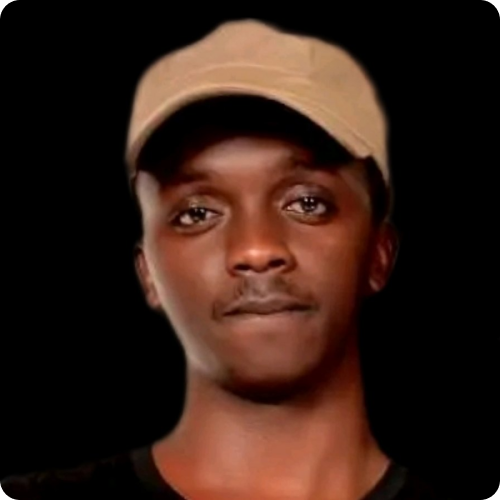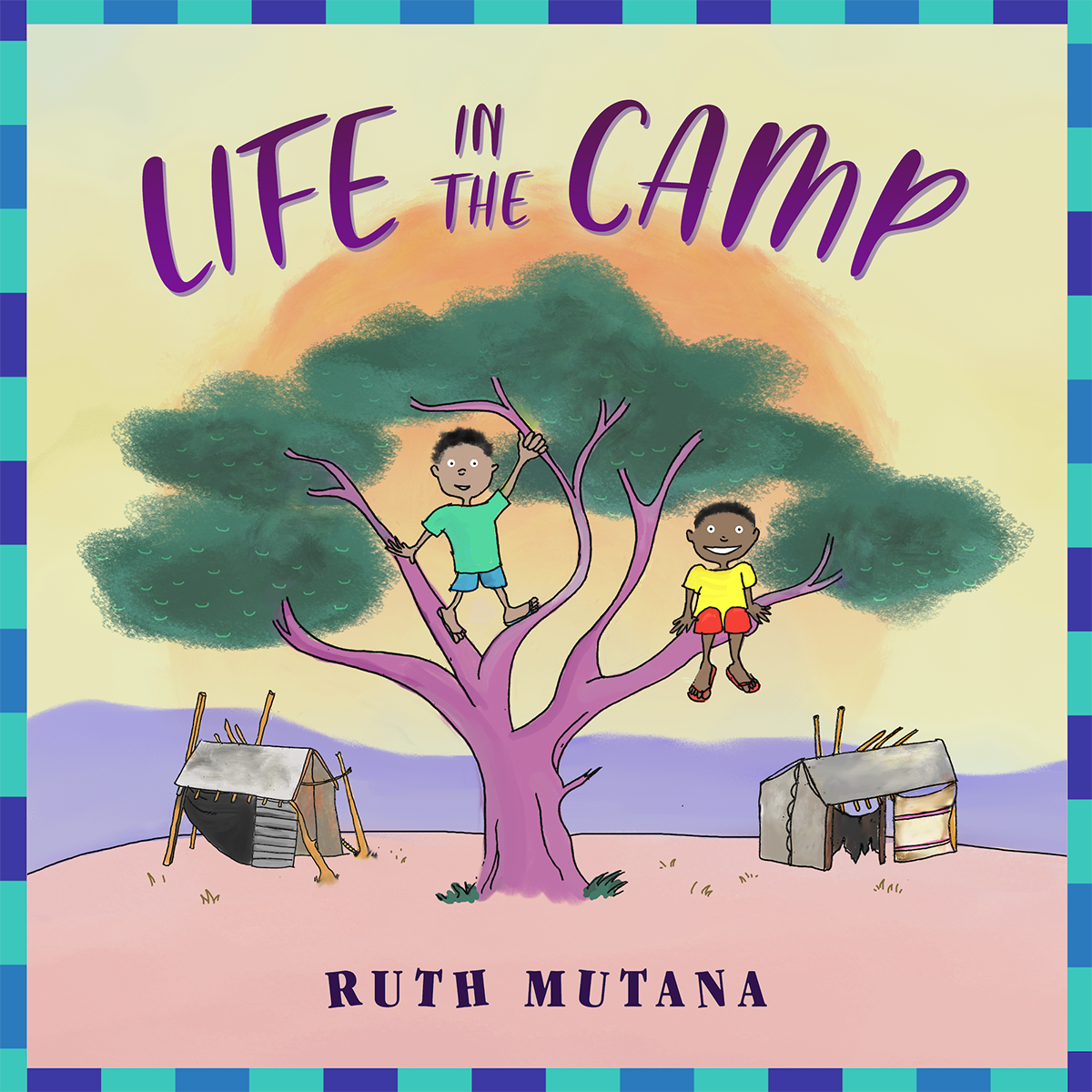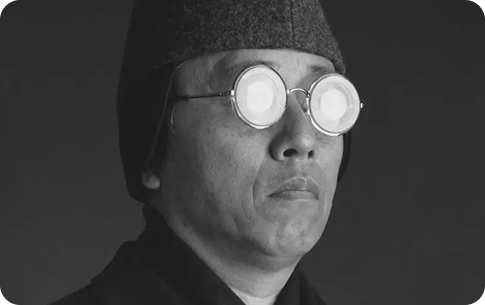
NOVEMBER 2023 | RWANDA
Fred Mfuranzima
“I won't stay in my lane, I use my art to fight against hate and rage, for a brighter future, I'll continue to engage.”
- Fred Mfuranzima
Fred Mfuranzima is a Rwandan writer, poet, artist, and activist working in the Great Lakes region. Born in Huye District in Southern Rwanda, Mfuranzima came from a family that survived the Rwandan Genocide against the Tutsi in 1994, where an estimated 800,000 to 1 million people were killed in the space of 100 days.
“In my early years, we relocated to the slums of Kigali, where I experienced the harsh realities of poverty, domestic conflicts, and a broken family,” he recalls. “Our parents, despite feeling hopeless, did their best to raise and educate us with the support of the government and various organisations. Growing up as part of the post-genocide generation, I became the hope for my family and community. Witnessing the challenges faced by impoverished and traumatised families, I was inspired to utilise my talents to serve my community.”
This led to him writing several books, doing poetry-music performances, conducting exhibitions, organising dialogues, and becoming a peace and mental health activist — eventually founding initiatives like Imfura Heritage.
“Witnessing the devastating consequences of genocide, conflicts, social injustice, I realised the power of creativity to spark change. Through my art, I aim to challenge societal norms, raise awareness, and inspire dialogue for a more healing, reconciliation, unity, inclusive and equitable community,” he said.
In 2017, after graduating from high school, Mfuranzima founded Imfura Heritage, a multidisciplinary art centre that serves “as a safe space for peace and healing, with the aim of using arts, literature, and intellectual learnings to inspire peace, mental health development, and human rights activism among youth artists..”
Mfuranzima said that Imfura Heritage has made a significant impact on the community of Rwanda and the Great Lakes region by fostering dialogue, promoting healing, and empowering the youth to become agents of positive transformation through culture.
Having witnessed the consequences of violence and division, Mfuranzima said he is driven to promote peace and inclusivity because, “the impact of a lack of peace is devastating... I won't stay in my lane, I use my art to fight against hate and rage, for a brighter future, I'll continue to engage.”
However, using art for building peaceful and inclusive societies comes with challenges, particularly in the Rwandan context where civic space is considered repressed by the CIVICUS Monitor.
“One major hurdle is navigating sensitive topics and cultural nuances while ensuring the message reaches diverse audiences. Additionally, there may be resistance from those who fear change or challenging the status quo,” he told us. “As an artist, writer, and activist, I strive to express myself freely, but there can be limitations imposed by societal norms, censorship, or political pressures.”
However, despite these challenges, Mfuranzima is not deterred and added: “I persist in finding creative ways to advocate for peace and inclusivity, adapting my approach as needed to ensure my work reaches its intended audience.”
Mfuranzima said funding for creative projects like his is also a challenge, noting that despite.
Mfuranzima said passion, support, resources, freedom, and self-care fuel the work of activists and creatives like him. “These elements provide motivation, collaboration, empowerment, expression, and well-being, enabling us to continue making a difference,” he said.
RUTH'S SHORT STORY

Global Citizen’s Emerging Creatives Program provides a platform for emerging creatives in the Global South that are highlighting the need for open civic space worldwide. Through their art, they call for change, shine a light on social injustices, and advocate for the advancement of the Global Goals.
MEET THE MENTOR
Rakaya Esime Fetuga
POET
South African-born Simphiwe Molefe, uses his photography to show the impacts of energy issues in the country. His collection of images titled, Impilo Iyaqhubeka, translates to mean “life goes on” in isiZulu and looks at how every day members of his community cope with South Africa’s ongoing power crisis.
In 2023, South Africa’s civic space rating was downgraded from “narrowed,” to “obstructed” — the third worst rating a country can have. That’s why Molefe believes creatives like himself have a role to play in highlighting the effects of the failure of basic services such as the power crisis in South Africa.

